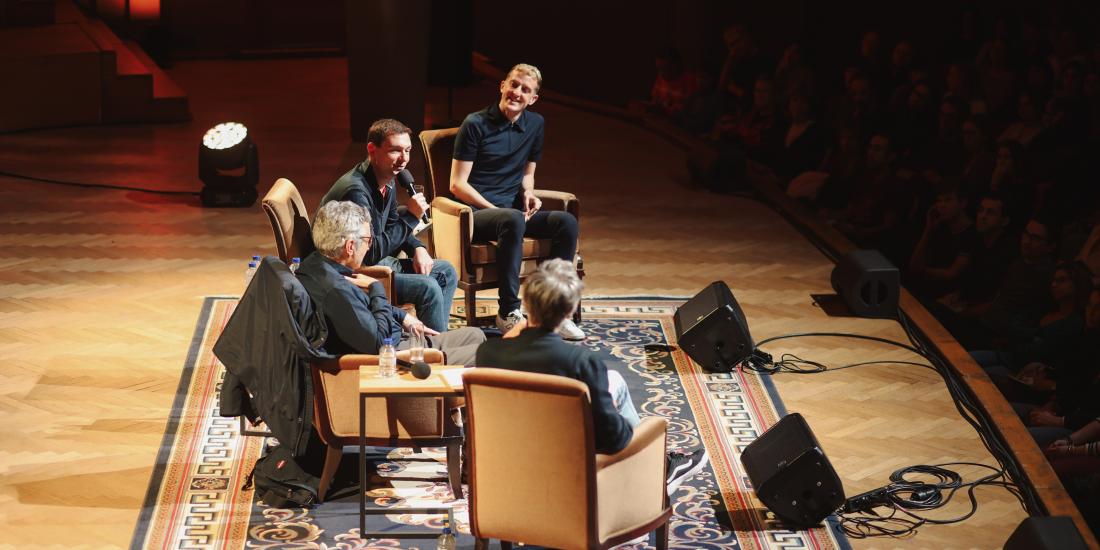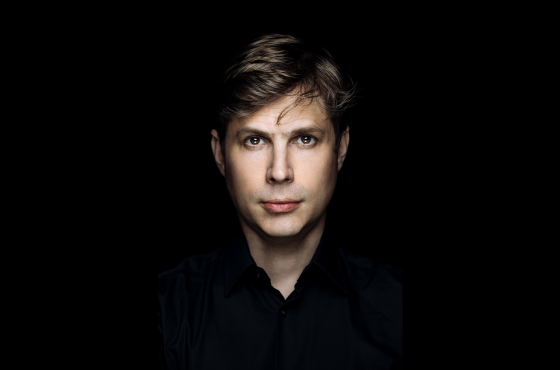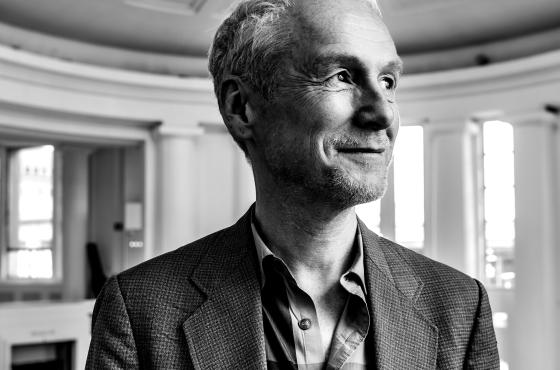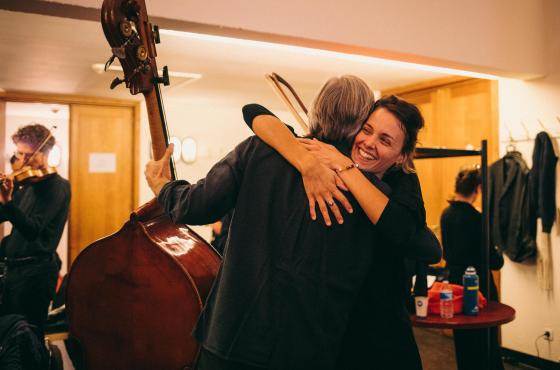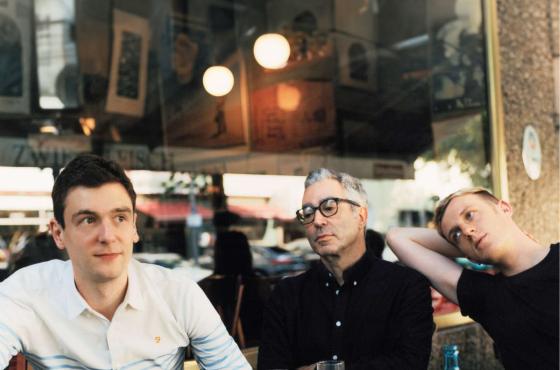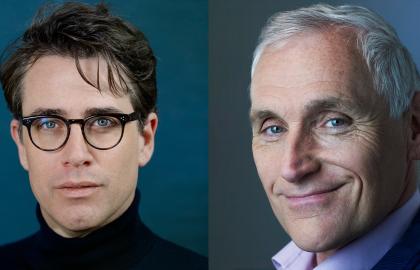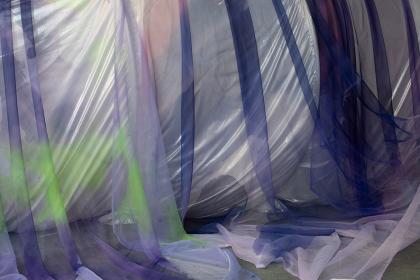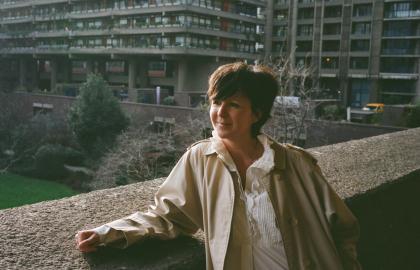According to Geoffroy De Lagasnerie, what distinguishes friendship from love is a form of unconditional freedom. When embodied in a traditional marriage, love perceives the outside world as a threat to the couple. “Where is my partner, who is he with, and why is he home late?” are all concerns that haunt marital intimacy. Friendship, on the other hand, is outward-looking and hungers for new connections, rarely involving jealousy, possessiveness or suspicion. Friendship frees us from the constraints of the home and invites us to dawdle, hang out in bars until the early hours, looking for new candidates.
With this introduction, the trio suggest that friendship provides an opportunity to reinvent our emotional relationships: ensuring our relationships are amiable can sometimes save them.
From Geoffroy De Lagasnerie’s political and sociological perspective, it is this freedom that makes friendship a kind of “declaration of independence in response to social institutions and their conventional model of happiness.” Friendship thus becomes a kind of emotional anarchism; it constitutes “the circle in which we resist the hostility of the social world. ” It rejects the exclusivity of the couple along with the culture of binarity that underpins the social world. “Friendship is the exact opposite of two. Friendship begins with three.”
“If you adopt friendship as a way of life you think of your life as a life of encounters, which revolves around the encounter with the other person.”
As for friendship as a way of life combined with family life, the trio laughingly reply with a resounding ‘no’. “ The three of us are an anti-family.” How does friendship become a genuine way of life? The trio’s answer is relationality. Experiencing friendship in this way implies a reconfiguration of our existence, in which our life no longer revolves around the Self, but the connection with the other person. Friendship becomes a transformation brought about by the collective, in which the individual is transformed into an essentially relational being. “If Édouard falls apart, so do I,” illustrates Geoffroy De Lagasnerie. This new quality is committed to demanding and profoundly ethical practices, such as generosity and being there for others.
A side note on class defectors
Édouard Louis invites us to reflect on the conundrum facing class defectors, while Didier Eribon reminds us that this journey is plagued by relentless ruptures, including emotional ones. Édouard Louis points out that the question of relationality - who you live with, share your bed with or have a relationship with - is deeply rooted in politics. The violence of the social world imposes fractures on the defector that are not only personal, but also sociological, even when it comes to intimate relationships. “When you become a class defector, not only your feelings about your background change; your ability to feel is transformed. Our subjectivity alters. You become a stranger in your own surroundings, unable to speak the same language as those you grew up with.”
The trio emphasise that intimacy goes well beyond sexuality, and that relationality - deeply political, then - has a far greater subversive force. Geoffroy De Lagasnerie explains: “When gay marriage was legalised, what bothered the French far right was not sexuality between two men behind closed doors, but access to marriage and the small tokens of affection they expressed in public.
"Literature has often told the story of subjective breakups (heartbreak, grief, betrayals...). I am trying to speak of objective breakups, in a somewhat sociological sense."
The writer, judgement and the quest for recognition
According to our guests, a writer who lives by friendship no longer writes out of a need for recognition but out of a need to encounter others. Geoffroy had already told us: friendship as a way of life is a gift of independence, and frees the writer from literary frameworks.
“I think that’s how the three of us can write works that blur the boundaries of literary registers and genres.”
However, Pascal Claude, moderator of the discussion, points out that we also write to be read. At the end of the day, doesn’t every publication ultimately seek critical recognition? Édouard replies with disarming honesty:
“Many writers dream of winning a literary prize. Personally, I think it’s a shame. Because that’s like submitting your work to a court whose legitimacy you don’t recognise.” Our trio once again propose the figure of the Friend to replace the jury. While the literary and academic fields hammer home the point that the objectivity and veracity of a judgement emanate from a distance from the work being judged, the trio insists that “truth requires affectivity.” The fairest and truest criticism comes from a Friend who knows you, because the moral demands of friendship are concerned with veracity. The opinion of a friend is demanding but generous, because a friend, Didier Eribon notes, is someone who wants the other person to do what they do as best they can. And they both know that.
Through this friendship that binds them together, the trio invite us to rethink and deconstruct the traditional image of the author: an author is not a tortured soul who spends his evenings alone in front of a fire, smoking a pipe and wearing a jumper full of holes. To be a writer is to wander the city in search of renewal, to leave on a whim when the need arises, to strike up conversations with regulars in local bars, to laugh, to go out, to brave the cold to fetch hot croissants every morning.
1, 2, 3... Polyphony
This encounter gave us three distinct voices, each exploring friendship from a combination of different perspective: sociology, literature and personal experience. Polyphony, the approach chosen by Bozar under the artistic direction of Christophe Slagmuylder, is perhaps the same thing: not only the encounter of genres and artistic voices, but also underscoring the authors’ voices we are trying to bring together under the figure of the couple or trio.
Didier Eribon, Geoffroy de Lagasnerie and Édouard Louis deconstructed our two themes of the season: love and the figure of the artistic couple.
Didier Eribon reminds us that “Sartre and Beauvoir were not only Sartre and Beauvoir”. There was also Madeleine Gobeil-Noël, Claude Lanzmann, Camus for a time, and others. The great creators did not do it alone. The artistic and literary couples who left their mark on their discipline cannot be isolated from the constellation of thinkers who gravitated around them and inspired their works.
Ultimately, even better than telling us about friendship, the trio showed it to us.
That’s probably what being a friend is all about: the tangible tenderness felt by the audience when Geoffroy’s voice becomes hoarse and he seeks refuge in Édouard Louis’ smile. Being a friend, Édouard says: “This anecdote always makes Geoffroy cry, so I'm going to finish it for him.” It’s also Didier who puts a hand on Geoffroy’s shoulder, a gesture that seems to say “I’m here” rather than “pull yourself together”. Or the moment when Didier starts to read and Édouard crosses the stage to adjust the microphone, before turning to us, intrigued, with a smile: “I promised him I’d do it.”
It was in these scenes with the 1800 silent witnesses that we were able to truly grasp the depth of the intimacy between our guests, and the reality of this friendship as a way of life.
We entered the impressive Henry Le Boeuf Hall to meet Geoffroy De Lagasnerie, Didier Eribon and Édouard Louis. We left knowing Geoffroy, Didier and Édouard. The ‘royal trio of contemporary French literature’ really drew us in, offering us a most informal, deeply intimate and warm-hearted conversation, despite the endless applause that greeted them on stage.
We left Bozar with the enchanting impression of having listened not to writers who had formed friendships, but simply to friends who write, together.
